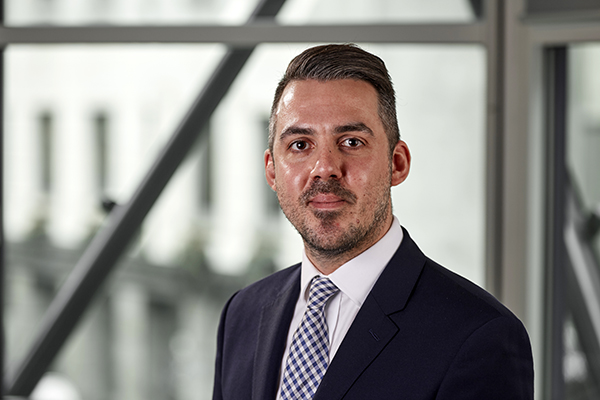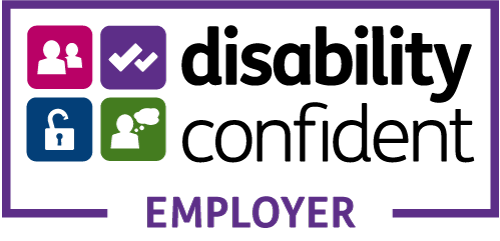Regular career 'check-in' conversations called The Best You Can Be help you keep on track, by focussing on short term actions which will help you move towards longer term ambitions.
Click below to read perspectives from our people on The best you can be career 'check-in' conversations:
- Richard Hunt, Partner, Corporate Finance
 At Addleshaw Goddard we've moved away from the annual review format, replacing it with running check-in’s at regular intervals throughout the year. We are doing this because we want to have more meaningful conversations about careers, aspirations and growth and we want to have them more often.
At Addleshaw Goddard we've moved away from the annual review format, replacing it with running check-in’s at regular intervals throughout the year. We are doing this because we want to have more meaningful conversations about careers, aspirations and growth and we want to have them more often.If we are being honest, annual reviews did not properly represent this firm’s commitment to looking after its people. There was a lot of paperwork, which was inevitably left until the last minute and the results were less than ideal for all involved. In fact, I would go as far to say that the old appraisal system actually made things quite difficult.
With check-in's you are not limited by mandatory time slots, pre-designed questions and standard forms. You get the time to understand each individual, the conversations are more transparent and I find that the communication is more direct and immediately actionable. The whole thing is punchier.
Check-in's also allow flexibility, which is especially crucial in the light of world events. Everybody has a different life, different experiences and different circumstances. These regular conversations have allowed more individuality to come through and given power to team members to structure their development in a manner that best suits them. Rather than an imposed mould of annual review that we press down repeatedly, we have a dynamic agreement that is driven by the motivating factors of each individual in the business.
We can use the check-in to set longer term aims, but it also gives us the ability to set shorter term goals that we can immediately impact. Annual objective setting can be vague or aspirational, specific objectives are real and actionable. Doing this has led to positive, incremental developments across the team that are visible in days rather than years.
Not only that, check-in's have sharpened my focus as a Partner. It is entirely possible we might need to change our practices or approach after some feedback in a conversation with an Associate. The check-in's increase our accountability and I am invested in making sure that when I have been given a task to do, I do it. Seeing this process go both ways has built trust in the team, and we have all embraced our responsibility to each other.
We have been doing check-in’s for a year now and they have given me a clearer picture of every member of the team without the need to refer to paperwork that is saved somewhere in my private folders. We used to hold a long partner meeting each summer to land on annual review key messages for each team member, but now we get feedback on each member of the team from key people that they have worked with every 3 months. The result is within our team, I could give you a summary of every Associate, where they are up to and what they are wanting next from their career.
That puts our Partner group in a very good place to make good and well-informed decisions about career progression and reward. Most importantly, it puts us in a very good place to help everyone around us be the best they can be.
- Carly Gulliver, Managing Associate, Corporate Finance
 Moving from an annual review to more regular check-in's has been a positive shift. In the past the review felt like a conversation that was driven by administrative need, now the check-in feels like something that helps you get to know your team leads and helps you drive conversations that will impact your career and your growth.
Moving from an annual review to more regular check-in's has been a positive shift. In the past the review felt like a conversation that was driven by administrative need, now the check-in feels like something that helps you get to know your team leads and helps you drive conversations that will impact your career and your growth.Rather than storing up issues and having a long chat once a year you can have regular discussions throughout the year to get constructive feedback and share your perspective. It gives you the chance to really take charge of those discussions and be more proactive about either seeking feedback or giving your own perspective on things that you have noticed about the team. It encourages more dialogue.
That dialogue is not limited to a check-in window either. The conversation continues in the team and with Partners and you update each other on any progress, it makes matters that were left until the annual review part of everyday working life.
The old annual review system in law firms has never been perfect, so it's great we've rethought it.
I have asked some of my clients to provide feedback for use in my check-in’s, it’s been really useful to get an external perspective and they have been happy to be part of the process. I have also been reaching out to people within my team for feedback more often. That's a really important part of this approach as it means your team lead has input from those who have recently worked with you. Input from peers and Partners has been helpful and has made the check-in’s even more valuable. We put a lot of emphasis on external networks in our career but I believe that our internal network is just as important for our success.
- James Reynolds, Partner, Construction & Engineering
 I have always found that talking to people openly and honestly about goals they can actually grasp and achieve in the short term is a good way to help them move forward. I have never found long forms and standard processes to be anywhere near as helpful, so I was glad when Addleshaw Goddard moved away from the annual performance review format and started a conversation-based approach called check-in's.
I have always found that talking to people openly and honestly about goals they can actually grasp and achieve in the short term is a good way to help them move forward. I have never found long forms and standard processes to be anywhere near as helpful, so I was glad when Addleshaw Goddard moved away from the annual performance review format and started a conversation-based approach called check-in's.Check-in's are not annual performance reviews, they are conversations that happen at multiple points throughout the year and they allow our team members to have more regular conversations about performance and priorities. They have also encouraged transparency as I explain how promotions, bonuses and salary work in our business and how people can take themselves to the next level of their career.
A check-in brings together good day-to-day people management and the formal processes necessary to ensure a business is properly taking care of people. There are structured times in the year when check-in's should happen, but within that time each individual conversation can be tailored to the needs of the individual. Rather than setting ridiculous aspirations you can devise the next step for a person in their growth, one they can attend to immediately. It is a more realistic, practical and granular way to help people advance.
It also helps keep growth at the forefront of the mind. At annual reviews we would often set objectives and then they would go in a drawer for ten or eleven months while people were busy. Now, if we set an objective together then the commitment is that it will be worked on immediately. This challenges us all to give clearer feedback and to make better agreements about where growth can occur in the short term.
For Partners, I think this new approach helps us to know our people better as we are engaging with them frequently on matters of substance. This enables us to advocate well for them when it is time for us to sit down and discuss the financial and promotion aspects of our business. For Associates it provides them with regular, high-quality conversations that help them understand the business and understand how they can take themselves to the next level.
- Ric Pizzuti, Head of Finance (Firmwide), Group Finance
 In the past the review process was, at its worst, essentially a backward looking conversation, usually once a year, based around a prescriptive admin process. This ultimately resulted in individual aims that could often be distant and rigid.
In the past the review process was, at its worst, essentially a backward looking conversation, usually once a year, based around a prescriptive admin process. This ultimately resulted in individual aims that could often be distant and rigid.Now those that want to drive their development and career forward have a platform to support that. In my team, even before the pilot we were advocating this type of approach, so the change has been a continuation of what we already knew worked well – team members articulating what they want to achieve and thinking through the steps to help them get there.
The agility of the new approach has been particularly beneficial in the current circumstances. It brings individuals and teams together more regularly to discuss priorities, and it helps to adapt to changes whilst still striving to achieve our very best. There is of course more to do to continue getting the best out of this new approach. Giving and receiving feedback needs to become more of an everyday norm and that is incumbent upon everyone at AG to contribute.
